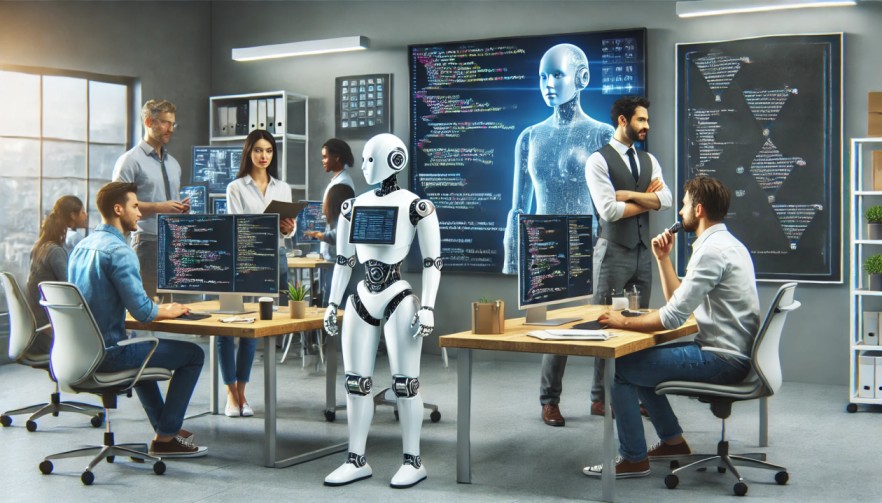
Revolutionizing Software Delivery: The Dawn of Autonomous Software Engineering
The software development lifecycle (SDLC) has long been a complex and challenging endeavor. Organizations invest significant resources in designing, developing, testing, and deploying software solutions, yet the process often falls short of expectations. One recurring hurdle is the difficulty in fully comprehending how software facilitates business processes, particularly when dealing with legacy systems or those lacking a clearly defined workflow.
Despite their best intentions, traditional methods often fail to capture the full spectrum of real-world usage. The discrepancy between the documented “as-is” and the actual “as-is” can lead to missed requirements, resulting in delays, cost overruns, and dissatisfied end-users. This issue is exacerbated in scenarios involving large, diverse user bases with varying usage patterns and workflows.
The Emergence of a Game-Changer: Autonomous Software Engineering
Enter autonomous software engineering, a groundbreaking field fueled by artificial intelligence (AI) and poised to reshape the software development landscape. This emerging paradigm leverages AI-driven tools to automate tasks, analyze vast datasets, and generate actionable insights, thereby addressing the shortcomings of traditional methods.
One such AI-powered tool is Devin, an autonomous AI software engineer. Devin possesses the remarkable ability to independently set up code environments, reproduce bugs, and implement fixes. This accelerates development cycles and liberates human developers from mundane, repetitive tasks, allowing them to focus on higher-level challenges that demand creativity and ingenuity.
Cloud Native: The Fertile Ground for Autonomous Software Engineering
Organizations that have embraced cloud-native architectures are ideally positioned to reap the benefits of autonomous software engineering. Cloud-native environments, characterized by their agility, scalability, and reliance on microservices, provide the perfect foundation for AI-driven tools to thrive.
Furthermore, the wealth of data generated within cloud-native environments is a treasure trove for AI algorithms. By analyzing this data, AI can optimize performance, identify potential bottlenecks, and predict issues before they manifest, leading to more resilient and reliable software systems.
Service Providers: Leading the Charge
Service providers are expected to be at the forefront of adopting and promoting autonomous software engineering. By integrating AI-driven tools into their offerings, they can streamline their development processes, reduce operational costs, and ultimately deliver superior value to their clients.
Additionally, service providers can act as trusted advisors, guiding their customers through adopting and implementing these transformative technologies. Their expertise and experience can prove invaluable in ensuring a smooth transition and maximizing the return on investment.
A Glimpse into the Future: The Impact of Autonomous Software Engineering
The potential impact of autonomous software engineering on the software industry is immense. AI-powered tools are poised to revolutionize how we build and maintain software systems by automating tedious tasks, accelerating development cycles, and enabling data-driven decision-making.
This translates to faster time-to-market, reduced development costs, and increased customer satisfaction for businesses. For developers, it means more fulfilling work, focusing on innovation rather than routine tasks. And for end-users, it promises more reliable, user-friendly, and intuitive software experiences.
Conclusion
The advent of autonomous software engineering marks a new era in software development. By harnessing AI’s power, we can overcome long-standing challenges, unleash new levels of productivity, and ultimately deliver software solutions that exceed expectations.
While the journey is just beginning, the possibilities are boundless. As AI advances, we can anticipate even more sophisticated tools and methodologies that will further transform the software landscape. The future of software delivery is undoubtedly intertwined with the rise of autonomous software engineering, and those who embrace this paradigm shift are destined to lead the way.
